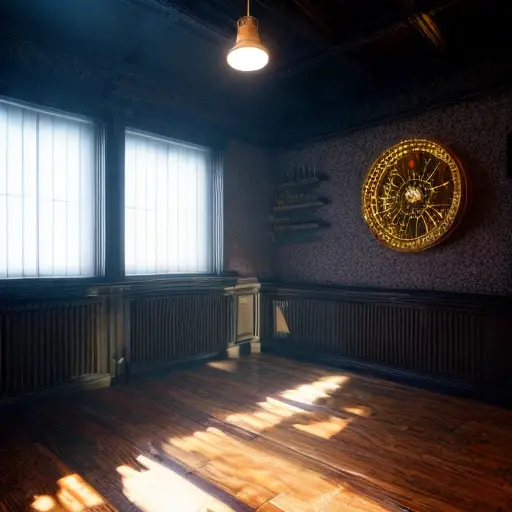Picture this: you're strolling down the street, minding your own business, when suddenly you come across a peculiar building that seems to be neither a hotel nor a cozy little home. Curiosity piqued, you wonder, 'What in the world is this place?' Well, my friend, welcome to the mysterious realm of halfway houses for mental health! These unique abodes serve as a supportive living environment for individuals navigating their way back to stability and independence. Think of them as a quirky blend of a rehabilitation center and a communal haven, where residents can find solace, camaraderie, and the occasional game of therapeutic ping pong. It's a place where laughter and understanding go hand in hand, reminding us that sometimes, the road to recovery is best traveled with a few fellow adventurers by our side.
An interesting fact about halfway houses for mental health is that they have been proven to significantly reduce the rates of hospital readmissions and improve long-term outcomes for individuals with mental illnesses. Studies have shown that individuals who transition from psychiatric hospitals to halfway houses experience better social integration, increased medication compliance, and reduced symptoms compared to those who return directly to their communities. These supportive environments provide a structured and supervised setting where residents can gradually reintegrate into society while receiving ongoing mental health support, ultimately leading to improved overall well-being.
Imagine a halfway house for mental health as a sturdy bridge, connecting the turbulent waters of treatment and the serene shores of independence. It's a place where individuals can find refuge and support as they navigate the sometimes treacherous path towards recovery. These houses provide a safe haven, offering a structured environment where residents can learn essential life skills, receive counseling, and engage in therapeutic activities. With a sprinkle of humor and a dash of camaraderie, these houses become a beacon of hope, reminding us that no one is alone in their journey towards reclaiming their lives. So, let's raise a toast to the unsung heroes of mental health recovery – the halfway houses that bridge the gap between darkness and light, one step at a time. Cheers!

Halfway houses for mental health are like hidden gems in the realm of mental health recovery. These unique establishments offer a plethora of benefits that can make a world of difference for individuals seeking stability and reintegration into society. Firstly, these houses provide a structured and supportive environment, offering residents a sense of routine and stability that may have been lacking in their lives. From daily schedules to group therapy sessions, halfway houses create a framework that helps individuals regain a sense of control and purpose.
Moreover, halfway houses foster a sense of community and camaraderie among residents. Living alongside others who are on a similar journey can be incredibly empowering and comforting. It creates a space where individuals can share their experiences, offer support, and build lasting friendships. This sense of belonging is invaluable in the recovery process, as it reminds residents that they are not alone in their struggles and that there is strength in unity.
Additionally, halfway houses provide access to a range of resources and services that are essential for mental health recovery. From counseling and therapy sessions to life skills training and vocational support, these houses offer a comprehensive approach to healing. Residents can learn coping mechanisms, develop essential life skills, and receive guidance on how to reintegrate into society successfully. This holistic approach ensures that individuals are equipped with the tools they need to thrive beyond their time in the halfway house.
Lastly, halfway houses act as a bridge between the structured environment of treatment facilities and the independence of everyday life. They offer a gradual transition, allowing residents to practice the skills they have learned in a supportive and supervised setting. This gradual reintegration helps individuals build confidence, develop independence, and establish a solid foundation for long-term recovery.
In conclusion, halfway houses for mental health are not just buildings; they are havens of hope and healing. They provide structure, support, and a sense of community that can be transformative for individuals seeking stability and reintegration. With their comprehensive approach and focus on gradual transition, these houses serve as stepping stones towards a brighter future, reminding us that recovery is possible and that no one has to face their journey alone.
A fun fact about halfway houses for mental health is that they often incorporate unique and creative therapeutic approaches to help individuals on their journey to recovery. These can include activities like art therapy, music therapy, pet therapy, and even equine therapy, where individuals interact with horses to promote emotional healing and personal growth. These unconventional methods can be both enjoyable and effective in supporting individuals in their mental health journey.
Navigating life in a halfway house for mental health is like embarking on a transformative journey filled with programs designed to empower and uplift residents. These programs are the heart and soul of these houses, offering a wide range of therapeutic activities and educational opportunities. From group therapy sessions and individual counseling to life skills training and vocational programs, residents are provided with the tools and resources they need to rebuild their lives. These programs not only address the immediate mental health needs of individuals but also focus on their long-term growth and reintegration into society. With a supportive and structured environment, residents can navigate their way towards a brighter future, one program at a time.